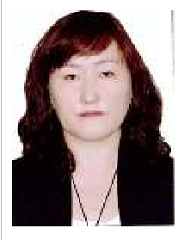
The UNESCO-UNEVOC International Centre: Who We Are | What We Do | Working With Us | Get in Touch
The UNEVOC Network: Learn About the Network | UNEVOC Network Directory
For Members: UNEVOC Centre Dashboard
Thematic Areas: Inclusion and Youth | Digital Transformation | Private Sector Engagement | SDGs and Greening TVET
Our Key Programmes & Projects: BILT: Bridging Innovation and Learning in TVET | Building TVET resilience | TVET Leadership Programme | WYSD: World Youth Skills Day
Past Activities: COVID-19 response | i-hubs project | TVET Global Forums | Virtual Conferences | YEM Knowledge Portal
Our Services & Resources: Publications | TVET Forum | TVET Country Profiles | TVETipedia Glossary | Innovative and Promising Practices | Toolkits for TVET Providers | Entrepreneurial Learning Guide
Events: Major TVET Events | UNEVOC Network News
The Vocational Education Training Partnership (VETP) is a membership-based NGO that was founded in 2013 by a group of collective development partners, including Oyu Tolgoi LLC, Millenium Challenge Account Mongolia (MCA-M), Deutsche Gesellschaft für Internation ale Zusammenarbeit (GIZ) GmbH and Swiss Agency for Development and Cooperation (SDC).
VETP supports the knowledge management and harmonization of development measures in the Mongolian technical vocational education and training (TVET) sector. This way, we aim to contribute to the sustainable development of an effective workforce that meets the needs of the Mongolian industry.
VETP works closely with the Government of Mongolia, private sector, development agencies, civil society and professional associations to identify and address development gaps in the Mongolian TVET sector.
To assist stakeholders in the making of sound policy and investment decisions, we offer free access to a web based information management system to all our members. In addition to this, we help clients to unfold their potential by providing research and other consulting services through our pool of dedicated experts.
We believe that in order to create large-scale lasting changes, organizations including those in government, civil society, and the business sector, need to coordinate their efforts and work together around clearly defined goals. As such our mission is to create sustainable coordinated action within the TVET sector. Our vision is a coordinated collective of partners working together to produce an efficient, sustainable and demand driven TVET sector with a world class workforce.

